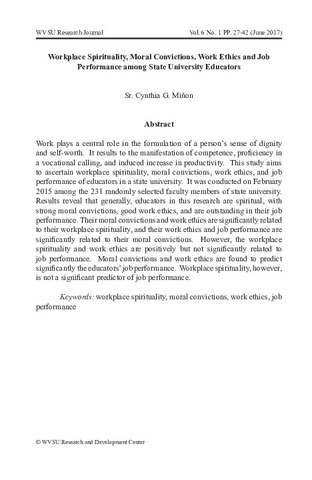Workplace spirituality, moral convictions, work ethics and job performance among state university educators
Share
Аннотации
Work plays a central role in the formulation of a person’s sense of dignity and self-worth. It results to the manifestation of competence, proficiency in a vocational calling, and induced increase in productivity. This study aims to ascertain workplace spirituality, moral convictions, work ethics, and job performance of educators in a state university. It was conducted on February 2015 among the 231 randomly selected faculty members of state university. Results reveal that generally, educators in this research are spiritual, with strong moral convictions, good work ethics, and are outstanding in their job performance. Their moral convictions and work ethics are significantly related to their workplace spirituality, and their work ethics and job performance are significantly related to their moral convictions. However, the workplace spirituality and work ethics are positively but not significantly related to job performance. Moral convictions and work ethics are found to predict significantly the educators’ job performance. Workplace spirituality, however, is not a significant predictor of job performance.


